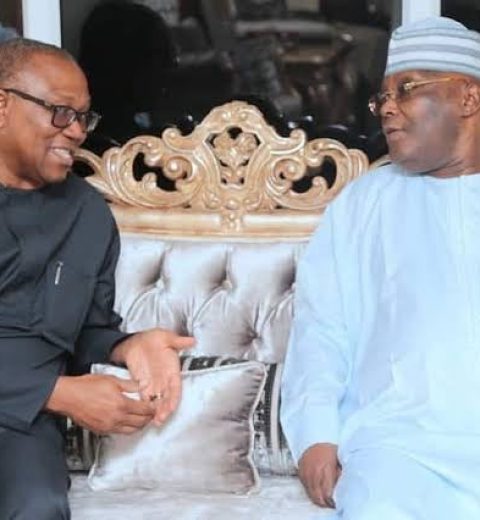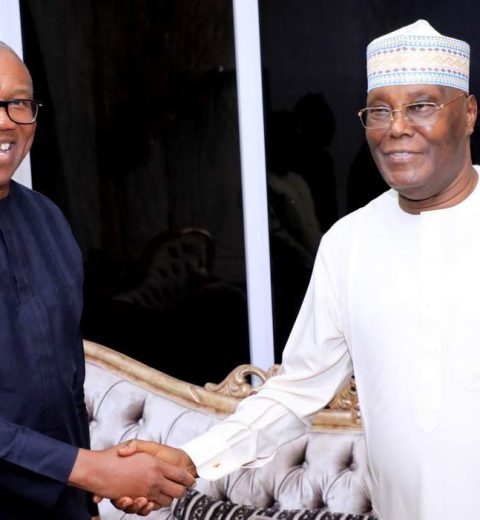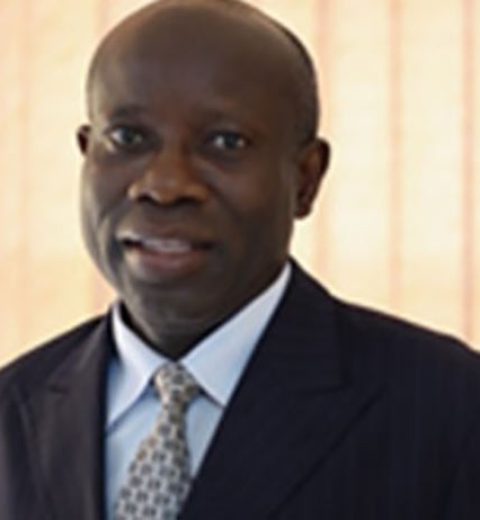• Unions assert breakdown in negotiations, deem N48,000 offer as wage reduction The Nigeria Labour Congress and Trade Union Congress withdrew from the minimum wage negotiations on Wednesday following the Federal Government’s proposal of N48,000, a significantly lower figure than the unions’ demand of N615,000 for the new national minimum wage.
Expressing their dissatisfaction with the offer, labor leaders held an impromptu press conference after abandoning the session, denouncing it as “an insult to the sensibilities of Nigerian workers.”
This marked the second instance of trouble within two weeks during the negotiation process. The previous session on April 29 ended in a stalemate as organized labor persisted in demanding N615,000 as the minimum wage.
The Federal Government contested labor’s request, considering it unreasonable.
However, Joe Ajaero, the National President of the NLC, clarified that the proposed amount was determined after a thorough analysis of the current economic conditions and the requirements of an average Nigerian household consisting of six members.
Justifying the demand for N615,000, the labor leader explained, “A living wage is one that can, at the very least, sustain your basic needs. It shouldn’t impoverish you further or force you to borrow money just to go to work. It shouldn’t result in frequent hospital visits due to malnutrition. That’s why we arrived at the figure of N615,000 for a living wage.”
“Allow me to break down how we arrived at that figure. We allocated N40,000 for housing and accommodation, N20,000 for electricity — though this was proposed before the recent tariff hike, rendering the current amount impractical. Utilities account for about N10,000. Additionally, we factored in expenses for kerosene and gas, totaling between N25,000 to N35,000.
“For a family of six, we estimated daily food expenses at N9,000, which amounts to N270,000 monthly. Medical costs are crucial; with the proposed N50,000, major medical procedures would remain unaffordable.
“We allotted N20,000 for clothing, N50,000 for education, which may not suffice for those opting for private schooling. Sanitation costs are approximately N10,000.
“The bulk of the budget goes towards transportation due to the distant locations where many workers reside, compounded by the high cost of petrol, totaling N110,000.
“This brings the total living wage to N615,000. I urge anyone to scrutinize this breakdown to determine if any savings are possible at this rate,” explained the NLC president.
However, during a press conference in Abuja on Wednesday, following the deadlock, Ajaero revealed that while the Federal Government proposed N48,000, the organized private sector initially suggested N54,000.
He attributed the breakdown in negotiations to the government and the OPS, stating, “Despite our earnest attempts to reach a fair agreement, the unreasonable actions of the government and the organized private sector have resulted in a breakdown of negotiations.”
He further expressed, “The government’s meager proposal of N48,000 as the minimum wage not only demeans Nigerian workers but also significantly fails to meet our needs and aspirations.
“While it’s acknowledged that even the lowest-paid private sector workers receive N78,000, as clearly stated by the OPS, this underscores the glaring disparity between the proposed minimum wage and existing standards, highlighting the reluctance of employers and the government to genuinely negotiate a fair national minimum wage for Nigerian workers.”
He criticized the government for lacking supportive data for its offer, which, he noted, undermined the negotiation’s credibility.
“Moreover, the government’s failure to furnish substantiated data further complicates matters. This absence of transparency and good faith undermines the integrity of the negotiation process and diminishes trust between the involved parties.
“As representatives of Nigerian workers, we cannot conscionably accept a wage proposal that would effectively decrease the income of federal-level employees who already receive N30,000 as mandated by law, augmented by Buhari’s 40 per cent peculiar allowance (N12,000) and the N35,000 wage award, totaling N77,000 only.
“Such a backward step would jeopardize the financial stability of workers and their families and is unacceptable within the framework of a national minimum wage determination process.”
Emmanuel Onwubiko, the National Coordinator of the Human Rights Writers Association of Nigeria, suggested a moderate stance between the government and organized labor. Nevertheless, he observed a lack of enthusiasm from the government regarding negotiations with labor.
Debo Adeniran, Chairman of the Centre for Accountability and Open Leadership, recommended that the tripartite committee reevaluate their discussions. He proposed that a minimum wage of N200,000 was reasonable for the government to consider. Adeniran emphasized that N48,000 fell short in meeting the basic needs of low-level workers, particularly given the prevailing economic conditions, inflation rates, and factors like rent, food expenses, and transportation costs.
For additional political news,visit..lagosstate.com




